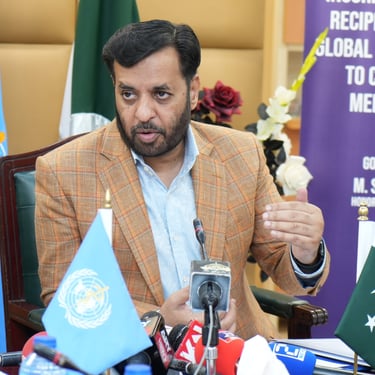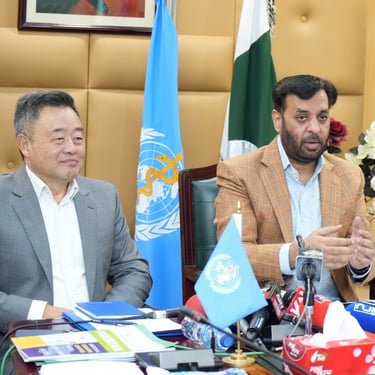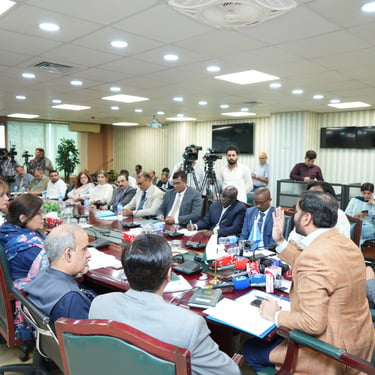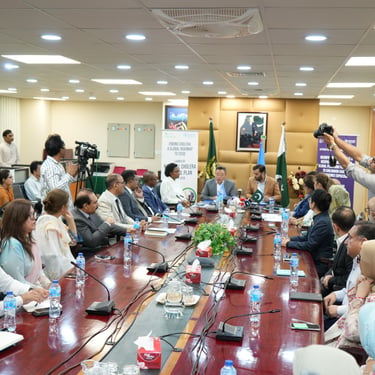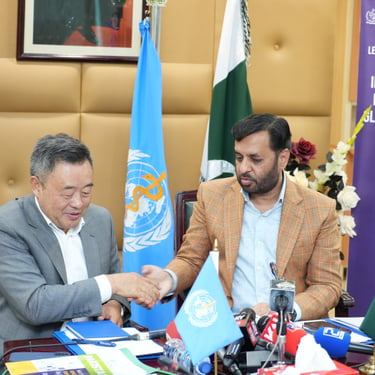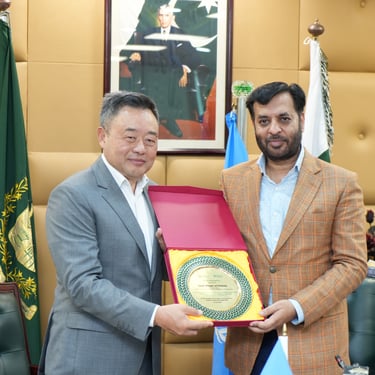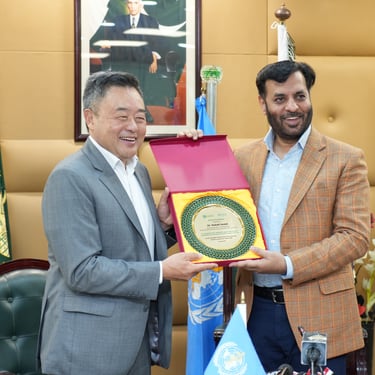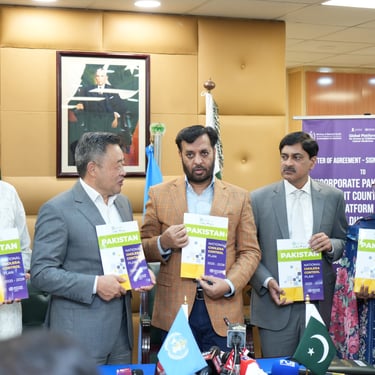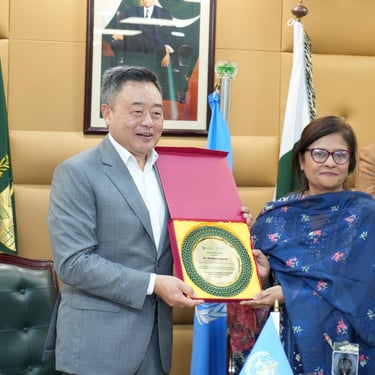Pakistan Signs Historic Agreement with WHO to Provide Free Cancer Medicines to 8,000 Children Annually
Under the leadership of Federal Health Minister Syed Mustafa Kamal, Pakistan has joined the Global Childhood Cancer Medicine platform in partnership with WHO and UNICEF. The agreement will ensure free cancer medicines for 8,000 children each year.
Web Desk Digital MQM
7/29/20251 min read
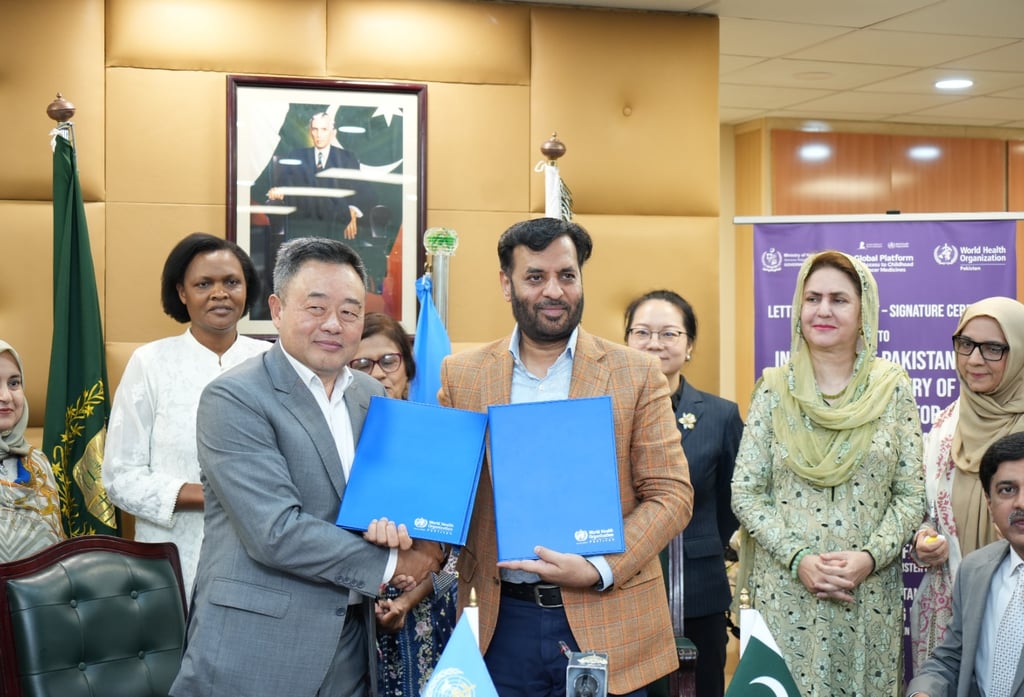

Pakistan Joins Global Fight Against Childhood Cancer Free Cancer Medicines for 8,000 Children Every Year
A Milestone in Public Health
Speaking at the signing ceremony, Minister Kamal declared:
“This is more than an agreement; it is a promise to save lives. Preventive healthcare starts outside hospitals, not inside them.”
He emphasized that the goal is to increase the survival rate of childhood cancer patients from 30% to 60% through timely access to essential medicines.
Operational Framework
UNICEF will handle the procurement and delivery of medicines to Pakistan.
WHO will provide both technical and operational support to ensure proper implementation.
The Ministry of Health will oversee national coordination under Minister Kamal’s leadership.
Key Remarks by Federal Minister Syed Mustafa Kamal
“Our healthcare goal must be prevention before cure.”
“No healthcare system can survive under the burden of uncontrolled disease.”
“We must act together — government and public — to fulfill our roles.”
He highlighted several national concerns:
43% of children in Pakistan suffer from malnutrition.
11,000 women die each year due to pregnancy-related complications.
Access to clean water can reduce hospital burden by 68%.
A Wake-Up Call for the Nation
Minister Kamal urged the public to take ownership of preventive healthcare:
Ensure routine vaccination for children against 12 deadly diseases.
Welcome health workers who bring vaccines to your doorstep.
Administer polio drops to protect children from lifelong disability.
“Even if we build more hospitals, we cannot handle the rising disease burden. Prevention is key,” said Kamal.
Why This Matters
Each year, approximately 8,000 children in Pakistan are diagnosed with cancer. With treatment often out of reach for low- and middle-income families, this initiative is a lifesaving intervention — offering both hope and real medical support.
